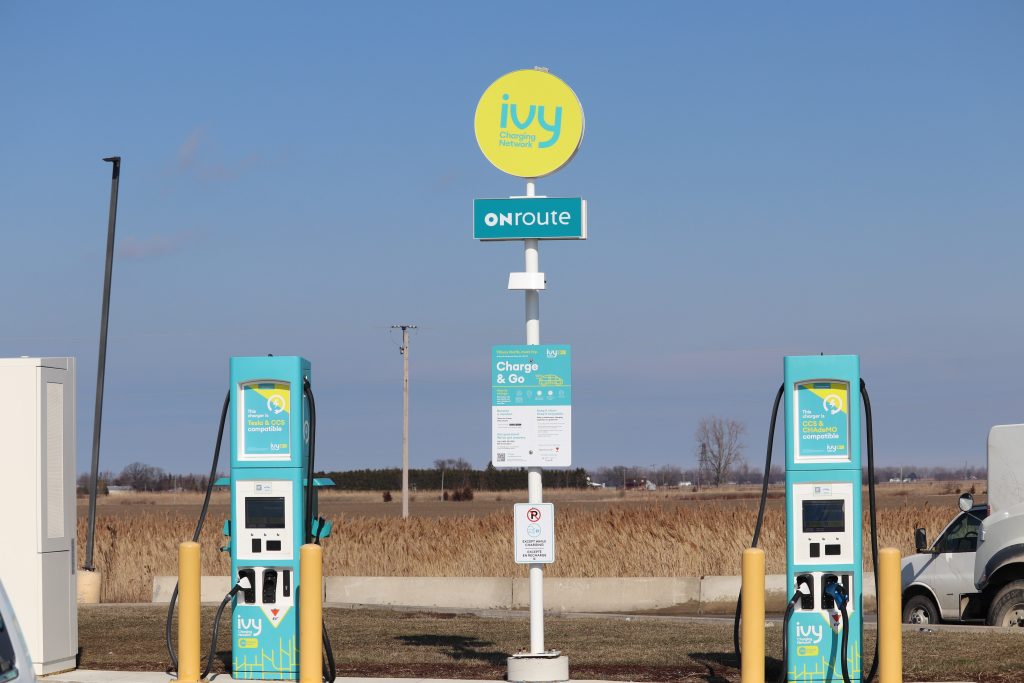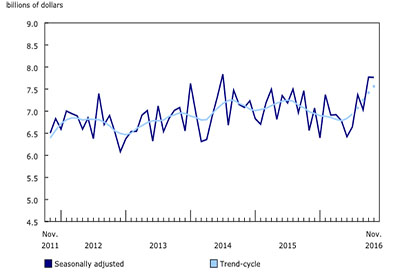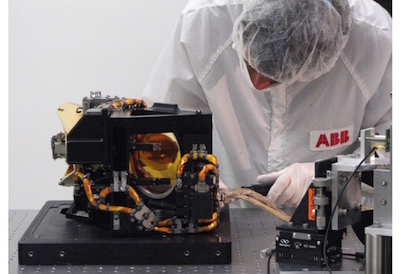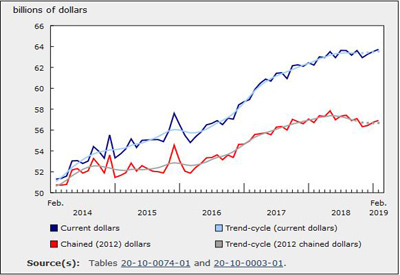Brame Electric’s Rory MacCuaig on their Stratford EV Charging Project


May 1, 2023
By Blake Marchand
In this article we talk with Rory MacCuaig of Brame Electric to gain some insight into the municipal EV Charger Installation project they are coordinating for the City of Stratford. MacCuaig is managing the project, he generally works as part of the industrial arm of Brame Electric, which is acting as the general contractor on the project as well as doing the electrical work.
The opportunity came about when the City manager reached out to them after not hearing back from their registered electrical contractor. Brame has done some water/wastewater work with the municipality, so they have a working relationship with the municipality.
Stratford wanted to move forward with an EV charger installation in several city parking lots, and they wanted to apply for some government grant funding. The funding applications required budgetary numbers, so they needed an electrical/general contractor to provide them with quotes for the project. The scope of the quote would need to include the entire project, not just the electrical work.
“I was kind of the second call just because of general knowledge and how the city operates, and they know we’re competent in taking care of the technical work,” MacCuaig noted.
“One of the main things about this,” he said, which was a bit of a concern for MacCuaig, “this isn’t like a $5,000 install it is a pretty significant number for them. I was the one that figured out the layout and started talk with Festival Hydro, basically, I created a full scope of work for the city to use, and with it being a high-ticket number I thought it might go to tender and other people would have the opportunity to bid on this project.”
“I never really like doing that because you never know if somebody is going to come in $50,000 under what you quoted but then turn around and bill the customer $50,000 worth of extras. It’s kind of a strange game that happens all the time.”
With that in mind he said, “I was upfront with them,” explaining that he was willing to consult on the project, create the scope of work, create the layout, give them the budgetary numbers for the City to move forward with, however if the project was going to go to tender, Brame would charge them a consultation fee for the process.
“If this is single sourced and I am allowed to carry on and complete this work,” he told the city, “I will waive that consultation cost because it’s basically part of the project.”
Once the project went to council it was a close decision. Some of the council members were hesitant to bypass the tender process due to the project cost while having only one contractor’s opinion on it.
“I don’t think they may have realized that this project had been in the works for almost two years and there’s been a lot of footwork involved, and for them to actually create a scope of work and send it out to tender, there was going to be a lot of lost time and they were going to end up not meeting deadlines for the grants.”
“It was a big decision they had to make.”
As a local contractor and taxpayer that grew up in Stratford it was a source of pride for MacCuaig to take on the project for the City.

The Project
Brame Electric has done EV charger installations in the past but generally, MacCuaig said it’s at a facility so the installation much more straightforward, “Where you’re just running conduit form the distribution to an outer wall and install the EV charger and away you go.”
“This is a little bit more complicated but, like I mentioned before, we do a lot of work with control panels and wastewater/clean water, and remote areas,” he said, so they have experience with more technical projects.
“Let’s say there’s parking lot one, there will be a centre median: we have to provide a new meter, so, it’s metered power from the supply company, and then a distribution cabinet that houses a main disconnect and distribution panel, and then we feed out to our EV chargers.”
In providing the quote and scope of work, MacCuaig provided information on energy load for each site, trench location, coordination with Festival Hydro on location of the charging stations in relation to service, siting for electrical meters and distribution equipment, landscaping and concrete work for reconstruction following the work, as well as directional boring to avoid reconstruction for some sites.
There are 12 chargers being installed in total. Some of the locations have two chargers and others have up to six. The federal government is contributing $160,000 over three years, while the City has budgeted $317,000 for the project. The funding is being provided through Natural Resources Canada’s Zero Emission Vehicle Infrastructure program. There will be eleven dual output level two chargers and one level three charger. Level 2 chargers will charge a car battery from empty in approximately 4.5 hours. A level three charger will do the same in approximately 30 minutes.
Along with coordinating the non-electrical components of the project, MacCuaig said Brame will be bringing in another electrical contractor, Kelly’s Electric, to help with a portion of the install, “They get into a lot more of the excavation and directional boring, sucker trucks, all that kind of stuff. We get along with them great, we work hand in hand if there’s anything with underground work – they are going to be assisting us with this project.”
“On some of the installations we’re going to be using directional boring, just to eliminate having to cut up half of a parking lot. Some of them (EV charger sites) we have to suck down below vault entrances for pad mount transformers.”
They are still determining how the project will be carried out, whether it’s one site at a time or all at once. The former would mean, MacCuaig said, “We excavate, bring our service feed over, get concrete to pour our bases, pull wire, fully terminate to have those fully operational – and then move on to parking lot two.”
The alternative would be to excavate all the sites at once and do each phase of the project at the same time.
“We could potentially turn around three of these parking lots within a month and have them fully operational,” MacCuaig said, “now, that’s going to take a lot of organization and basically wipe the slate of any other projects in order to complete it that way – but like I mentioned before, we do have the manpower that I can have guys working on that job until its done.”
MacCuaig said that would be his preference, and that it would make coordinating the sub-trades easier.
Particularly for the concrete, it would make more sense logistically to pour the pads at each site rather than one at a time because the pads are 5’x3’ and 2’x2’.
At the time of the interview MacCuaig said they were still planning some of the layout logistics before they begin work on the project.
“We are planning on starting installations in the spring/early summer,” he said, “I’m still currently working with the engineers on service layouts and some of the specifics on the site installations. That’s getting very close to being completed.”
Once they are able to confirm the service layout with Festival Hydro, MacCuaig said the game plan is, “number one, to order the distribution equipment, that’s one of the things that’s taken a little bit longer for us to get our hands on is big enclosures – it seems the bigger they get the longer the lead time.”
“We’re just trying to sort out exactly what Festival Hydro requires for metering. Some of the sites are a little bit larger for distribution services so we’ll need to have separate metering cabinets for distribution equipment.”
Ultimately, MacCuaig said, “The most important thing for me is that this project is flawless.”
“I want to make sure we provide a perfect turn-key solution.”
He is confident that the functionality of the project will be there given the experience of the company and their track record, and so his focus is to deliver an overall finished product that is aesthetically pleasing to showcase Brame’s work to the city, because it’s such a public project and a major investment for the City of Stratford.
“It’s an interesting project for sure, we’re looking forward to doing it,” he said, “Stratford is a pretty busy city in the summer, it’s good exposer for us, for sure.”
Supply Chain Challenges
Supply chain disruptions caused by the pandemic played a factor in the quoting process.
“We’ve seen costs triple/quadruple in the last three or four years, so providing a quote last year […] obviously there is a significant cost increase just based on material alone.”
“In the end I revised the price three, maybe four times, just to reflect differences in the material costs – and with the surging fuel costs six months ago, obviously for stuff to get here on trucks costs a lot more too. So, that was a bit of challenge with having to keep going through and 2-inch conduit was worth $2/ft now it’s worth $2.56/ft, sort of thing, so you had to keep going through and doing that.”
“The last time I revised it, I said, look, I’ve been notified that in two weeks this price is going up, so I’ve accounted for that, if this project takes another six months to get going there may be another increase. Or they may be a decrease as well.”
“Our suppliers are pretty good with us,” he said, “they will give us a heads up, ‘there’s a copper increase coming in a couple weeks’ – stuff like that.”
MacCuaig said they have been stocking more general material since the start of the pandemic created significant supply shortages and price fluctuations.
“With the original COVID product delays let’s call it, we kind of realized – there were times when you couldn’t get ¾” PVC conduit, there’d be thousands of feet on backorder from three of the wholesalers in town. So, we started playing it smart and stocking lots of our base material. Now, it comes with exorbitant costs for the amount of time before you can sell it, but you got to weigh that against the alternative of having employees standing around, they’re supposed to be doing the job but the materials not there for them to complete it.”
EV Infrastructure
As electric vehicles become more prominent and gas vehicles are pushed more to the side, MacCuaig sees more opportunity for EV infrastructure, particularly at gas stations and rest stops. For example, OnRoute has started putting EV chargers at some locations, but more will be required as uptake increases. Gas stations will also need to be retrofitted with EV chargers, which will have to include an upgraded service.

“When you’re looking at a normal gas station, it probably only has a 100amp or 200amp service, so that whole service is only going to run four Level 2 chargers,” he explained. “You’ll have to upgrade the whole service to the gas station,” MacCuaig noted.
Brame Electric
MacCuaig has been with Brame Electric for five years. His previous company disbanded and a few of them moved over to Brame, which is when the company started expanding their industrial services.
Their shop is currently moving, which is another wrinkle for them in this project.
MacCuaig mentioned Brame has out grown their current space, “We do a lot of control panel builds as well – we’re currently building a seven-foot tall four-foot-wide cabinet right now, it doesn’t seem like that big of a cabinet but when you have everything laid out, strewn about it does take up a significant amount of space while you’re doing the fabrication portion of it.”
Another interesting aspect MacCuaig touched on is the dynamic between electrical contractors in Stratford. There have been several challenges and uncertainties within the market in recent years, one that is becoming more prevalent is the availability of labour. Instead of competing to attract quality workers from other companies, the contractors in Stratford, MacCuaig said, tend to work together.
“It’s interesting here,” he said of the landscape of contractors in Stratford, “I remember a new manager coming into a supplier, many years ago, and he said, ‘I don’t know how there are so many small contractors in Stratford that everybody really gets along, and nobody is trying to cut each other’s grass or anything like that.’”
“Right now, there’s kind of a worker shortage,” he said, but it’s not a scenario where he is trying to offer more money to electricians working for other contractors, “we don’t try to poach off of each other.”
“Everybody gets their piece of the pie,” he said. “We’ve kind of learned to all work together.”











